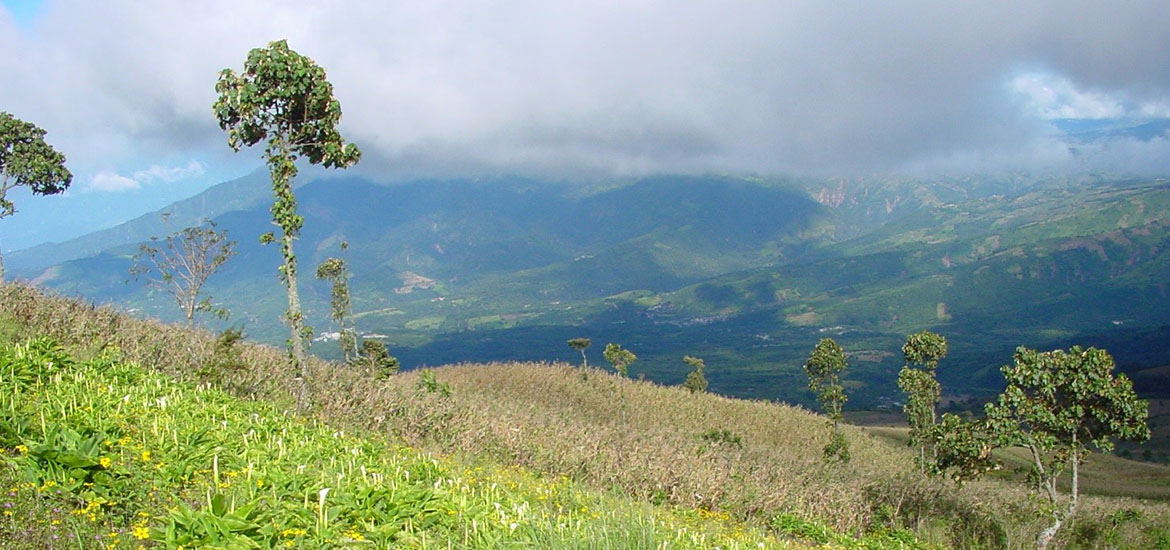Reality Check: Alternative Energy is Not a ‘Magic Solution’

Renewable energy is the name of the game in today’s global environment, as political, business and scientific leaders rush to propose innovative solutions to the world’s impending environmental crisis. Aside from the obvious temporal limitations of this issue, the primary motivation behind this recent green explosion lies in gaining an economic advantage in this new niche, green market. Terms like hydroelectricity, bio fuel and solar power are currently being thrown around as ‘magic bullet’ solutions that will instantly solve the world’s energy problems and with it, harbor in a new era of sustainability. But as with any issue, it is certainly not that simple.
We are all in this together… or are we?
Environmentalism, or ‘going green’, is often perceived as an altruistic movement that supersedes political or economic motives due to its global relevance. The root of this notion lies in how both global leaders and the media frame the issue, portraying its impact as apolitical due to its universal impact. While it is true in a broad sense that no one is immune to the effects of environmental degradation, this view is often taken to an extreme in a way that is largely superficial, and rather naïve. Some individuals and groups are decisively more immune than others – an inevitable outcome of the capitalistic system that anchors contemporary global affairs.
While environmental degradation directly manifests at the ecological level, the effects of this disruption vary depending on factors like geography, local economic activity, socio-economic position, and even culture. To say that environmentalism is a ‘global issue’ glosses over the intricate complexities of the current situation of those immediately affected, removing the unique and varying economic, political, social and cultural concerns from the equation. The ability to both confront and contain sustainability issues, both in the future and in the present, is a function of economic, political and social means. For example, while there continue to be political disagreements on how to address environmental issues at both the domestic and global levels in countries like Canada and The United States, they are more equipped at all levels to deal with both the damage caused by environmental shifts, particularly compared to poorly equipped developing countries bearing the brunt of this environmental impact, as well as the necessary initiatives needed to prevent or minimize future damages.
The irony, however, is that companies and governments are going abroad, primarily to developing areas, to find these solutions. These organizations view developing areas as relatively untouched regions in terms of human intervention due to the lack of industrialization. Unlike industrialized nations, these regions still possess an abundance of natural resources as well as viable land that harbors undeveloped potential in terms of sustainability. In fact, many developed nations like the U.S. and China have begun buying land in these underdeveloped regions as an insurance policy for potential resource shortages in the future, specifically concerning agricultural viability.
In addition, these regions are much simpler to navigate bureaucratically, as there are less economic, political and legal barriers to overcome. The guise of environmentalism, however, provides the perfect cover for countries and individuals interested in profit and global market monopolization, as it allows these organizations to justify their self-serving actions as altruistic while monopolizing the resources of these nations and gaining control over the green market, most evident in Latin America.
A dark horse
Much to the world’s surprise, Latin America has emerged as a global leader in sustainability due to its vast amount of resources and ideal geographic location for natural energy production. Notably, Costa Rica has emerged as the region’s silent leader, managing to obtain 98.53% of its energy from renewable sources since 2014, while in 2016 Nicaragua shocked the world by refusing to sign the Paris Agreement , arguing that its measures were not comprehensive enough. Furthermore, the hydroelectric industry has blossomed in South America due the abundance of rivers. The Amazon Basin in particular has seen a boom in the construction of hydroelectricity dams in the last decade with more on the way. Hydroelectric power has not only proven to be one of the cheapest and most efficient forms of renewable energy production for the demands of this massive region, but it has substantially boosted national economies, delivering over a decade of steady economic growth in the Amazon region. Costa Rica’s success, Nicaragua’s optimism and the Amazon region’s growth has not only demonstrated the potential of the region’s resources, but also the social, economic and political implications of this green path if Latin American nations can reclaim their resources. Unfortunately, accessing this potential means not only eliminating the capital of foreign investors, who provide the primary stream of income and sustenance for these nations, but also addressing internal corruption, all of which would require large scale societal shifts across the region.
A tale as old as time
As with any ‘success’ story in in Latin America, ‘success’ is a relative and often misleading term. Environmentalism in Latin America has a darker and more sordid side, where foreigners (primarily those of western nations) have capitalized on the fertile resources of its geography while enslaving its populations in a vicious cycle of economic dependency. As it stands, multinational companies, backed by powerful governments, have a monopoly over the region’s resources, striking self-serving deals with national governments plagued by corruption that ultimately destroy local communities at both the human and ecological level. To put it more crassly, powerful organizations are destroying local environments and communities in the region so that they can return to their own communities with solutions to ‘save the planet ’. While energy diversification is important, it should not come at the cost of human lives, both figuratively and literally.
(Un)Sustainable initiatives
Aside from the ethical questions produced by this unequal relationship, the supposedly positive environmental initiatives undertaken by foreign companies are actually destroying the environment. Once thought to be the region’s ‘magic bullet’ to energy production, hydroelectricity has proven to be one of the most controversial alternative energy sources. From an ecological standpoint, the installation of dams on rivers disturbs the natural hydrology of rivers and with it, many of the ecosystems that local communities depend on for food. Countries like Brazil have learned this lesson the hard way, as the recent influx of dams along the Amazon River has increased the amount of available electricity but at the cost of crippling droughts in the country’s southern regions. These droughts have had disastrous effects for some of the country’s most populous areas like that of São Paulo. In a place where resource shortages and poverty are already astronomically high, this supposedly sustainable practice has actually had the opposite effect.
While hydroelectricity is a relatively new development in the region, its underlying motives and crippling consequences are all to familiar for the region’s citizens. As the alternative energy market grows, other ‘sustainable’ production methods run the risk of creating the same problems. Currently, bio fuel derived from sugar cane is on the rise in Central America due to the region’s tropical climate. With the rise of these new fuels, and other energy sources, will come the continuation of unjust and arguably unsustainable practices if preventative measures, such as stricter domestic controls and more cautious considerations regarding the ecological sustainability of the region, are not undertaken.

At the very least, these practices should be sustainable, which would seem like an obvious point. One of the most glaring, yet highly invisible issues, with the development of alternative energy in Latin America is the ironic unsustainability of these practices. Despite the groundbreaking scientific advancements, at the end of the day, foreign organizations are still having to export energy to their home nations and remain unable to produce their own energy domestically. In many cases, the host communities do not retain any of the produced energy and thus must also continue to import energy, all together creating an illogical process with an even larger carbon footprint.
The damage has been done
Indigenous groups and Ladino peasants (non-indigenous population) living in rural areas most affected by environmental intervention have repeatedly attempted to protest these projects, using both legal and political means as well as social tactics like peaceful protests. These efforts, however, have been continually met with unjust persecution from these external organizations. In Guatemala’s case, local communities receive little to no protection from the Guatemalan state and are left to oppose these large, well-equipped multinational companies. In addition to the legal and political corruption, these companies have turned to physical violence and oppression. At the moment, four Canadian companies are on trial for unjust violence in Guatemala after indigenous protesters took to the streets to protest harmful mining practices in the region. Ultimately, this altercation resulted in eight deaths and the gang rape of eleven women. In the last ten years, countless individuals have been killed while even more have faced violent and unsolicited injury, yet there is no clear number, a majority of these interactions go ‘unnoticed’ and thus unprosecuted. When the Guatemalan state does intervene, multinational companies are able to bribe the state in order to avoid punishment; the same occurs with projects that are considered illegal or contrary to popular opinion.
At the heart of these issues is resource distribution. At the most basic level, communities need water and the various other resources its provides to survive, so when companies divert or disrupt water streams, they reduce the already scarce amount of fresh water available. In terms of resource distribution, they also steal water from local subsistence farmers. Consequently, local populations remain permanently dependent on external resources and must import their energy, as well as basic resources like food that they can no longer produce.
Many experts and critiques alike scoff at terminology like modern colonialism, believing colonization to have ended at the beginning of the 19th century with the region’s independence from Spain. This unregulated destruction of local communities in the name of resources and capital, however, proves otherwise. Ultimately, political and economic motives invoke questions of economic inequality that disproportionately affect indigenous populations and rural ladino farmers. In Guatemala, this inequality is magnified by the fact that more than half of the population (55%) is indigenous, and when considering the fact that the majority of the ladino lives in urban centres, indigenous individuals bear the brunt of these foreign environmental projects.
In the instances where indigenous and other local resistances are successful, it is often too late. Recently, a community in Suchitepéquez organized a resistance to eliminate the irrigation motors on the Rio In Icán that had been draining the river, and while the resistance was successful, the damage had been done, as the water returned to the region polluted. The lack of regulation, or enforceable regulation, in the region for these environmental projects not only pollutes these water sources, but it also disrupts the hydrology of these streams and with it, countless ecosystems.

Not only are national governments in the region struggling to prosecute and maintain authority over these international companies who feel they are outside national jurisdictions, but there are also little to no regulations on projects that are officially sanctioned. Even still, in places in like Guatemala, regulations for the development of bio-fuel are not necessarily a priority, as officials and individual citizens alike must navigate issues like wide scale corruption, police bribery, gang violence and drug trafficking.
The time is now
Environmentalism is often viewed as a scientific issue whose solutions must be derived from a laboratory, but in the end, it is a human issue, created and exacerbated by human political and economic actions. The same is true for any country, but the stakes are much higher in Latin America where inequality and resource shortages are coming full force in places like Nicaragua and Venezuela. Now is the time to act and reconfigure the direction of contemporary environmentalism, as inequality will only continue to hinder its progress, but this will require the dismantling of an entire system, which is no easy task. A good starting point, however, is to contain these issues by implementing a series of regulations and directed at returning resource control back to these nations, and even more so, local communities. If a fundamental change is not enacted, this contemporary environmentalism movement will only serve as a band aid until the world finds itself in a similar position, battling unsustainable practices once again.
Edited by Zoë Wilkins
